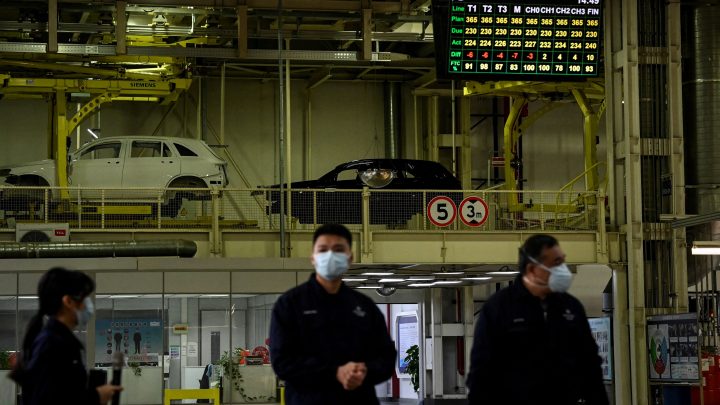
2.6 million cars cut from global production forecast this year
2.6 million cars cut from global production forecast this year

Cars have become both scarce and more expensive over the past couple years, and a new analysis from S&P Global Mobility is forecasting that there will be 2.6 million fewer new cars to be had this year and next.
That’s because of disruptions related to the war in Ukraine and sanctions on Russia. On top of that, automakers are also contending with new COVID-19 lockdowns in China as well as yesterday’s earthquake in Japan, which is affecting a major chipmaker there. There are a whole lot of new kinks in an already beleaguered global supply chain.
It’s been one thing after another for the auto industry. First came the initial wave of COVID lockdowns and factory closures, then the semiconductor shortages.
“Now we’ve got war and earthquakes and a new variant of COVID,” said Michelle Krebs, executive analyst at Cox Automotive.
According to Krebs, the war in Ukraine is primarily affecting European carmakers, which get a lot of their wiring from Ukraine. But she said American carmakers will likely be affected, too, because they get critical materials from both Ukraine and Russia.
“Palladium, which is used in catalytic converters, that comes from Russia. Ukraine produces a lot of the neon gas that’s used for chipmaking,” she said.
COVID outbreaks and restrictions in China are also slowing production for some automakers, including Volkswagen and Toyota.
Sam Fiorani, an industry analyst at AutoForecast Solutions, said he doesn’t expect that to last.
“The Chinese market is very resilient,” Fiorani said.
But the war in Ukraine and the ongoing chip shortage will likely reverberate for longer, he said. And all of these disruptions highlight a bigger problem.
“The auto industry over the last 40 years has shifted towards a just-in-time plan, where parts come in and they get assembled onto the vehicle,” Fiorani said. “There’s very little warehousing of components.”
Any delay is felt almost immediately.
All the supply chain issues of the last two years would be bad enough on their own, said Bernard Swiecki with the Center for Automotive Research, “but they’re also happening at a time when the industry is transforming the product that we build,” moving away from gas-powered cars and toward electric ones.
“It means a very different supply chain and a lot more vulnerability to some of the shortages in raw materials and rare earth elements,” he said, and world events are making that transition a lot more difficult.
There’s a lot happening in the world. Through it all, Marketplace is here for you.
You rely on Marketplace to break down the world’s events and tell you how it affects you in a fact-based, approachable way. We rely on your financial support to keep making that possible.
Your donation today powers the independent journalism that you rely on. For just $5/month, you can help sustain Marketplace so we can keep reporting on the things that matter to you.

















